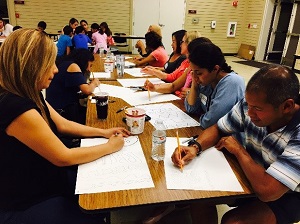 This article was written by Shereen Walter, California State PTA’s Director of Legislation.
This article was written by Shereen Walter, California State PTA’s Director of Legislation.
Now that the Governor and Legislature have come to agreement on the details surrounding the $2 billion to incentivize schools to reopen for in person learning, what can you as a PTA do?
First of all, remember that your PTA represents ALL parents – those who want their kids to return to school, those who are more cautious and those who are not ready for their children to return to school full time. You need to be speaking for “Every Child, One Voice.”
Stick to the PTA talking points outlined in the two California State PTA documents:
- 10 Things California State PTA Recommends for the Safe Reopening of Schools
- School Reopening Principles
Some of the issues surrounding school reopening that you can advocate for are:
- Parent Communication and Input – School Districts must prioritize strong two-way communication with parents as they prepare and execute reopening plans. The voices of parents representing the diversity of the community need to be included in decision making.
- In-Person Attendance – Parents should be able to choose whether their child returns to school in-person depending on the health of the child and their family situation.
- Mental Health Is Important – Schools must provide adequate resources to meet the mental health needs of students and staff to support their individual needs.
- Expanded Learning and Learning Loss – Parents should be providing input into the types of programs needed to address learning loss and that also meet the social emotional needs of the whole child. School districts are developing their plans now to address learning loss caused by the pandemic, including after-school, summer, and child-care programs.
- Realistic Timeline – Schools need to open as soon as practically possible while protecting the health and well-being of students, staff and families.
- Technology Access – All students who continue on a hybrid or distance learning model need to have appropriate Wi-Fi and a computer or laptop so that they can adequately access remote learning.
…and now for a few cautions.
- Offer quotes to the media in writing. This prevents you being quoted out of context, incorrectly, or from accidentally stating your personal opinion rather than the stance of PTA.
- Stick to PTA talking points on the social media accounts of PTA.
- Opinion pieces can only be written with the approval of your executive board and must contain only PTA positions.
- PTA leaders can not use their PTA title or affiliation in speaking in opposition to a PTA position.
Last of all, PTA must remain neutral in a dispute arising from school employer-employee negotiations. For more detailed information, see this webpage.
To return to the blog homepage, click here.